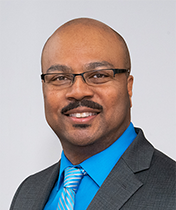The Conflict of Interests (COI) Committee at Case Western Reserve University administers the university's policies on conflict of interests in order to preserve the integrity of the university and its members. The committee aims to maintain compliance with applicable federal regulations, while respecting academic freedom and encouraging outside scholarly and entrepreneurial activities.
The COI Committee is composed of CWRU faculty, administrators, representatives of affiliate hospitals and community representatives. The committee, including its leadership, is appointed by the president.
The COI staff supports the committee in its endeavors which include:
- Administering the annual disclosure process
- Reviewing annual and updated disclosure forms
- Developing conflict of interests management plans
- Providing education on conflict of interests to the university community
Outside Financial Interest Disclosure Form
CWRU requires board-appointed faculty members, investigators and senior staff to complete the Outside Financial Interest Disclosure Form. The COI Office can assist in creating an individual’s form. This disclosure must be updated within 30 days whenever there is a disclosable change in outside financial interests.
Submit your Outside Financial Interest Disclosure Form online:
- Log into SpartaCOI using your CWRU Network ID and password.
- Follow the instructions on-screen.
- Contact us if you have any questions or need assistance: cwrucoi@case.edu.
To learn more about SpartaCOI, review the SpartaCOI training.
CWRU COI Policies and Procedures
Get in touch with COI Contacts
Contact the Conflict of Interests Committee (COI) to register for a new account, make changes to your existing form or get help with questions about what to disclose. For questions or feedback for the COI staff, email cwrucoi@case.edu or contact a member of our team.

Yovonda Rease
Research Integrity Education ManagerEmail: yovonda.rease@case.edu
Phone: 216.368.5963

Johnny Sams, MA, MBA
Research Security OfficerOffice of Research AdministrationEmail: johnny.sams@case.edu
Phone: 216.368.0607

